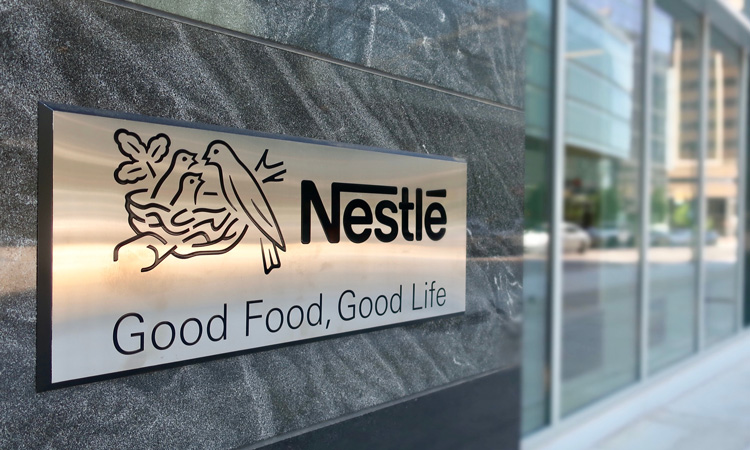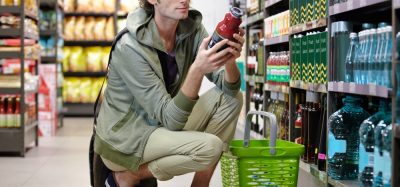Nestlé highlights efforts in sustainable packaging transformation journey
- Like
- Digg
- Del
- Tumblr
- VKontakte
- Buffer
- Love This
- Odnoklassniki
- Meneame
- Blogger
- Amazon
- Yahoo Mail
- Gmail
- AOL
- Newsvine
- HackerNews
- Evernote
- MySpace
- Mail.ru
- Viadeo
- Line
- Comments
- Yummly
- SMS
- Viber
- Telegram
- Subscribe
- Skype
- Facebook Messenger
- Kakao
- LiveJournal
- Yammer
- Edgar
- Fintel
- Mix
- Instapaper
- Copy Link
Posted: 8 September 2020 | Sam Mehmet (New Food) | No comments yet
Nestlé noted that it aims to solve the issue of plastic pollution through its three-pillar approach launched in January 2019. Read the approach here.


Nestlé expects the deal with Mindful Chef to be completed by the end of the year.
Nestlé has reinforced its actions to make 100 percent of its packaging recyclable or reusable by 2025 and to reduce its use of virgin plastics by one-third in the same period.
The company announced a series of new initiatives that include a $30 million investment to increase food-grade recycled plastics in the US, a refillable system for pet food in Chile and ‘first-of-its-kind’ recyclable paper packaging for Maggi bouillon cubes in France.
“We have made strides in our transformative journey towards a waste-free future, but we know that we have more work to do. As the world’s largest food and beverage company, we’re committed to putting our size and scale to work to tackle the packaging waste problem everywhere that we operate,” said Véronique Cremades-Mathis, Global Head of Sustainable Packaging, Nestlé.
Nestlé’s three pillar approach is:
Pillar 1: Developing new packaging
- Transitioning to paper packaging across various formats. For example, Smartiessharing block, a popular colour-coated chocolate confectionery product, is available in a recyclable paper wrapper in the UK
- Gerber and Piltti baby food use a first-of-its-kind, single material pouch designed to increase recycling value
- Nespressointroduced new capsules made with 80 percent recycled aluminium
- Nestlé’s water business has doubled the amount of rPET used since 2019 across its still water portfolio in the US to 16.5 percent.
Pillar 2: Shaping a waste-free future
- In August 2020, Nestlé Philippines reached plastic neutrality. That means Nestlé collected and co-processed the equivalent amount of plastic as contained in the products sold and prevented the further flow of plastic into landfills and oceans
- Together with Project STOP, Nestlé has created a sustainable waste management system and helps reduce ocean plastic pollution in Indonesia
- Nestlé embarked on a trial to collect, sort and process soft plastics in Australia
- Nestlé is scaling up reusable and refillable options for its Petcare and soluble coffee products, for instance, through collaboration with the start-up company MIWA in Switzerland
- Nestlé advocates for the design and implementation of affordable and effective mandatory Extended Producer Responsibility schemes. It has identified 20 countries, accounting for 50 percent of the company’s plastic usage, where the company will support recycling rates and waste management infrastructure.
Pillar 3: Driving new behaviour
- Nestlé is rolling out a sustainable packaging education and training programme for over 290,000 employees, to accelerate behaviour change and help the company meet its packaging objectives
- Nestlé introduced a digital platform to help consumers dispose of their packaging waste appropriately in Italy
- Nescafé Dolce Gusto launched a consumer education campaign to promote recycling in Germany and in Mexico
- The Algramo(Chile), MIWA (Switzerland) and Loop (France) pilots of refillable and reusable packaging solutions offer a new shopping experience.
Additionally, the company announced that it is seeking to identify and support innovative solutions through the Nestlé Creating Shared Value (CSV) Prize, which launches 30 September 2020. In partnership with the non-profit organisation Ashoka, the Nestlé CSV Prize will award CHF 250,000 in grants for system change innovations in areas such as alternative delivery systems and ground-up solutions to tackle plastic waste.







